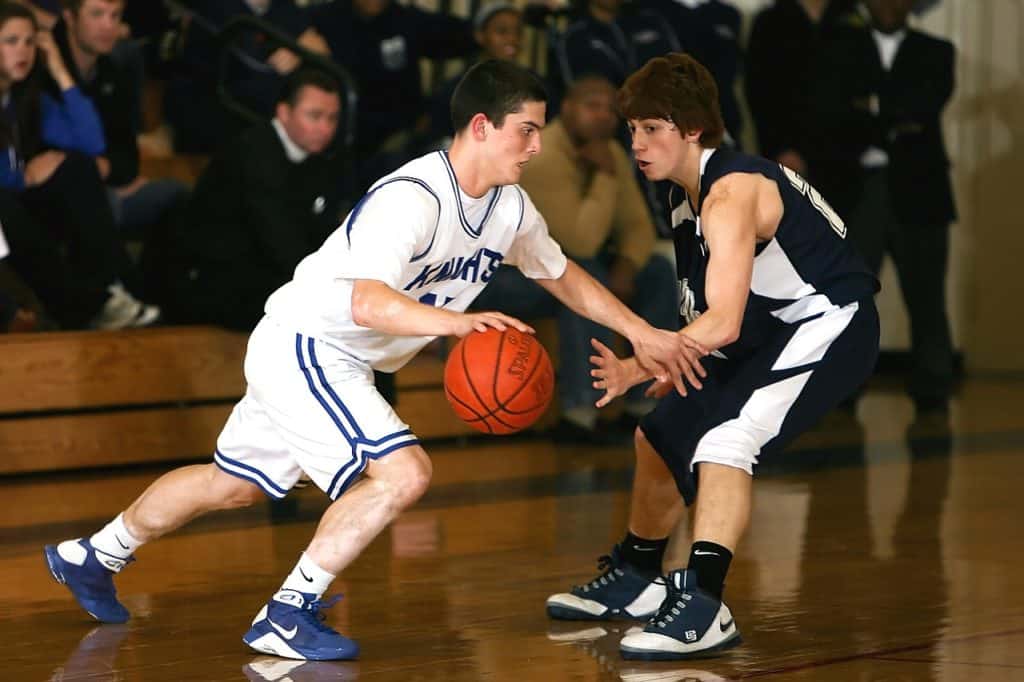Orthodontics is a practice that literally changes people’s lives. Why? Because whether we like it or not, appearance matters. We live in a world where your physical appearance can contribute to your success in life. This is often why parents get their children braces at a young age. They want them to look their best and feel confident. Many children get braces while they’re in school and they often participate in sports, which means protection is necessary. In fact, there are a lot of professional athletes that wear braces and require appropriate protection.
Regardless of the sport, it’s common for injuries to occur while playing. At Rick Herrmann Orthodontics, we know that even if you’re careful and follow all the rules, there’s still a chance that you’ll experience an injury at some point. If you wear braces, you’ll need to make sure they’re protected while engaging in any sporting activity. You’ll also want to minimize the amount of pain you experience if you happen to get hit in the mouth while playing. The reason why this matters is because of how braces are designed. They are intended to create tension so that the patient’s teeth move in the desired direction and into the best possible position.
Since braces are tight, they can push up against different areas of your mouth and that feeling isn’t pleasant. The metal elements of braces can be especially problematic if you don’t protect yourself appropriately. This issue can be exacerbated during activities that are more likely to involve high impact with other players. Protecting your braces while playing sports is especially important because damage could affect the amount of progress made and extend the amount of time required to wear your braces. Fortunately, there are different types of mouthguards that you can use while playing sports to minimize the damage and pain.
Types of Mouthguards
There are mouthguards that fit tightly, yet comfortably on your teeth. These mouthguards are made with various materials, but most often contain some type of plastic so that they have a hard surface. Regular mouthguards are not designed specifically for people with braces, but are sometimes used for that purpose. One of the issues that often arises with regular mouthguards is they don’t fit well over the braces. Even if they are large enough, they might not be as comfortable as mouthguards that are made to accommodate braces.
Orthodontic mouthguards are specifically designed to protect people that wear braces and play sports. What’s great about orthodontic mouthguards is that they are often made of a much softer material, such as silicone. This means the braces will not press up against a hard, plastic surface like they would when a regular mouthguard is used. Additionally, orthodontic mouthguards provide a better fit for those who have braces because they are shaped for that purpose. Wearing orthodontic mouthguards while playing sports means there’s less of a chance that the alignment of the braces will be affected if an injury occurs.
While both orthodontic mouthguards and regular mouthguards offer protection when playing sports, it’s important that you have the best protection possible. By consulting with Dr. Herrmann, you can learn about the different options and determine which type of guard is best based specifically on your needs. Wearing braces doesn’t have to become an unpleasant experience, especially now that there are so many different ways to customize braces aesthetically. The importance of mouthguards cannot be undervalued because it’s a matter of safety, but it’s also a matter of preventing any unnecessary discomfort or pain.
To speak with Dr. Herrmann or our Mansfield, Texas team about mouthguards or other questions regarding life with braces, contact us at (817) 473-9880 or fill out the form below for a free consultation.
